Author: Kent Larsen
-
Literary Lorenzo Snow #9: Memento
The sacred and eternal nature of families is regularly taught and believed among Mormons today. But it wasn’t seen as quite as obvious to Church members in the middle of the 19th century. The teaching that our family relationships extend past this life and are modeled on the family relationship we had before this life…
-
Literary DCGD #18: The Temple of God
We are a temple-building people. Today we are more removed from the process than ever. Where Mormons once donated money, materials, time and effort to building temples in Kirtland, Nauvoo, St. George, Salt Lake and elsewhere, we participate less and less in the process, first no longer providing materials, then over time less and less…
-
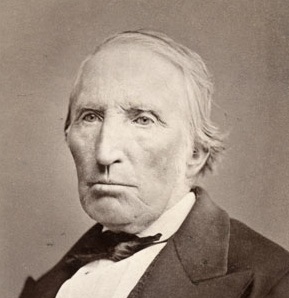
Literary DCGD #17: A Satire on Avarice
Its hard to find poetry about tithing! I suppose since tithing wasn’t emphasized as much by the Church before the beginning of the 20th century, Mormon poets didn’t focus on the concept. Or, it might simply be that the subject matter doesn’t work well in poetry; certainly the word “tithing” isn’t very poetic, leaving me…
-
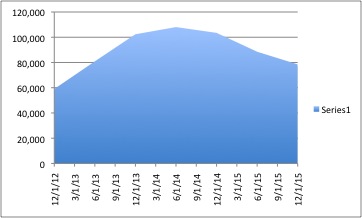
So, how many missionaries will be serving next year?
I made a mistake. The week before conference the LDS Church Growth blog, analyzing a Church news release, projected that the number of missionaries serving could pass 100,000 by the end of 2013 or early 2014. When the news appeared in a facbook group I follow, I thought it seemed overly optimistic. I realized soon…
-
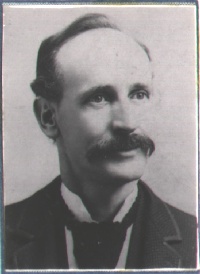
Literary DCGD #16: Sabbath School Opening Hymn
When we discuss the Sabbath in lessons, we can either focus on the things that we should not do to keep the day holy or we can focus on the things we can and should do. The 16th Gospel Doctrine lesson for the Doctrine and Covenants focuses more on the latter than on the former,…
-
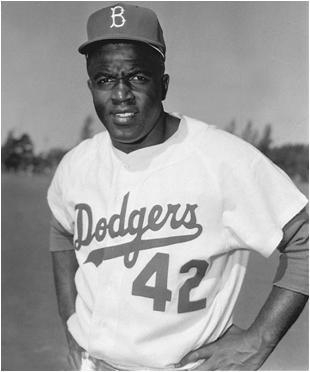
Why Today is Important
After I returned home from my mission I attended a single’s ward in suburban Washington D.C. in which we had an unusual sacrament meeting one Sunday. One after another ward members came to the podium and delivered the words of the children’s song “I am a Child of God,” each in a different language, a…
-
Literary Lorenzo Snow #8: The Epitaph
Character not only matters, Lorenzo Snow seems to indicate in the material included in lesson 8 of the Lorenzo Snow manual, it is how we are judged, how the Lord “knows our heart.” This prioritizes, of course, character development, which is, in the end, the focus of this lesson. While I don’t have a Mormon…
-
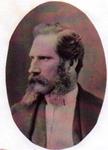
Literary DCGD #15: A Prayer
I had a hard time finding a poem that fits with this week’s Gospel Doctrine lesson on spiritual gifts. There just aren’t many that even mention spiritual gifts, and most that do seem to be predominantly about another subject. But I was finally able to find one that focuses on the gift of healing, one…
-
Sunday Morning Session
President Henry B. Eyring is conducting this session of General Conference. Choir — Go Forth in Faith Conducting — President Henry B. Eyring Choir — Let Zion in Her Beauty Rise Invocation — Elder Steven E. Snow President Dieter F. Uchtdorf — “The Hope of God’s Light” It is part of our condition as mortal…
-
Priesthood Session
President Uchtdorf conducted the priesthood session, which included a number of strong and inspiring talks. Choir — Arise, Oh God, and Shine Invocation — Elder Ronald W. Rasband Choir — Nearer My God to Me Elder Robert D. Hales — “Stand Strong in Holy Places” Brethren, if we are faithful in the priesthood, this armor…
-
Twelve
This April we begin the month looking forward to what comes from 12 men and a few more. We will watch what they do and say, perhaps learning some lessons from them. We may disagree and perhaps even be disappointed in what they do. But we will watch, and what we see will inform how…
-
Literary Lorenzo Snow #7: Since Mother Went Away
In Mormonism we talk a lot about concepts like “enduring to the end” and “faithfulness in times of trial” (the subject of the current lesson in the Lorenzo Snow manual). We teach that trials are a necessary part of life, burdens that we need to pass through in order to learn the lessons of life…
-
Literary DCGD #14: The Female Relief Society of Nauvoo
What does it mean to consecrate? What are the kinds of things we must do, the attitudes and priorities we must have when we consecrate all that we have and that we are to the Lord? Doctrine and Covenants Gospel Doctrine lesson 14 explores the Law of Consecration, focusing on these attitudes and priorities and…
-
How do you celebrate Easter?
What do you do to commemorate Christ’s resurrection? Modern culture, at least publicly, outside of Christian churches, doesn’t celebrate Easter as much as many other holidays or commemorations. Christmas, Halloween, Independence Day, Memorial Day and Valentines Day all seem to get more attention. I suspect that this is, at least in part, because they have…
-
Literary DCGD #13: Inspired Writings
Lesson 13 of this year’s Gospel Doctrine manual reviews some of the most important contributions of Joseph Smith—the scriptures he brought forth. Through Joseph Smith we have not only the Book of Mormon, but also the Doctrine and Covenants, Pearl of Great Price and the inspired version of the Bible. In addition, Joseph Smith provided…
-
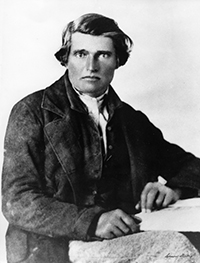
Literary DCGD #12: The Gathering of Zion
One of the most modified Mormon doctrines is the doctrine of the gathering—the idea that Church members should move to a central gathering spot to build up Zion in this dispensation. D&C lesson 12 teaches about this doctrine, the subject of many of the sections in the Doctrine and Covenants. Under this doctrine, Mormons have…
-
Literary DCGD #11: Bold Pilgrim
One of the early focuses of the Doctrine and Covenants is missionary work. Repeatedly the Lord advises the Church in revelation that “the field is white, already to harvest,” and encourages missionaries to labor with “all your heart, might, mind and strength.” Church members are urged to prepare and to “open your mouths” to warn…
-
Literary Lorenzo Snow #6: Saturday Evening Thoughts
Chapter 6 of the Lorenzo Snow manual discusses President Snow’s teachings about perfection—his encouragement of gradual improvement, diligence and patience and the role of repentance in obtaining perfection. One of the concepts that stands out to me is the requirement for patience and endurance in reaching perfection. These themes can also be found in his…
-
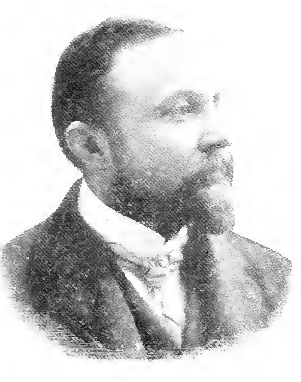
Literary Lorenzo Snow #5: Pre-Existence
Lorenzo Snow’s teachings on man’s destiny and on the nature of God have often been met with both criticism from non-Mormons and wonder from members. His couplet about the past of God and the future of man (mentioned in the lesson), encapsulates an important part of Mormon theology, something that has been even encapsulated in…
-
Literary DCGD #10: Friendship
Lesson 10 of the Gospel Doctrine manual for the Doctrine and Covenants is one of those lessons that is a bit hard to characterize. It covers D&C 25, addressing subjects like “husbands and wives should support and comfort each other,” “meekness and pride,” and “rejoice and be of good cheer.” I found it hard to…
-
Understanding Eternity
When I read Stephen Peck’s groundbreaking novella A Short Stay in Hell the idea that struck me more than any other was how little we know about the idea of eternity–and how unfamiliar we are with how long eternity is. We simply have no way of comprehending the time involved. We live in a world…
-
Literary DCGD #9: The God that others worship by John Hardy
The formal organization of the Church on April 6, 1830, subject of Gospel Doctrine lesson #9 this year, was the culmination of many preparatory steps that Joseph Smith and his fellow believers took. When the organization occurred, the group had new scripture, new authority from God and a new prophet at its head. In the…
-
Literary DCGD #8: Hymn by John Hardy
The restoration of the priesthood, outlined in the D&C Gospel Doctrine lesson #8, is central to the Church’s claim to authority and to our understanding of the course of the plan of salvation. Following the atonement of Christ, the authority to administer the ordinances required for eternal life must be a very important element of…
-
Literary Lorenzo Snow #4: Then give us, O Father
When Lorenzo Snow speaks of the Holy Ghost in the material included in chapter 4 of the lesson book, it is clear that he sees the spirit as a great help to us. “It would be simply foolish indeed to expect the Latter-day Saints in these days to comply with the celestial law… except they…
-
Literary DCGD #7: I would see Jesus
When discussing the first principles and ordinances of the gospel the focus is often on the details and less often on their purpose in the plan of salvation. The 7th D&C gospel doctrine lesson talks about faith, repentance, baptism and the gift of the holy ghost. In teaching these principles and ordinances, the focus should…
-
Crowdfunded Mormon Art
What Mormon art projects are drawing attention? Does the Mormon community donate to worthy projects? What Mormon projects attract Mormons? Off and on I’ve been looking at Kickstarter, the crowd-funding website for artists of all kinds who are looking for seed money to get their projects completed. I’ve even funded a project and I’m looking…
-
Literary Lorenzo Snow #3: To the Latter-day Saints
The concept of enduring to the end can be somewhat vague. Much of what it requires depends on environment and circumstance — what is required for you to endure to the end is perhaps different than what will be required of me. But the underlying gospel principles are known, and the following poem by Eliza…
-
Literary DCGD #6: May I Remember Thee
The principle of personal revelation is a foundation of Mormonism, a key to our understanding of the gospel. And few places in the scriptures make this as clear as in D&C 8 and 9, which are discussed in Gospel Doctrine lesson 6. There we learn, among other things, that faith is a key aspect of…
-
Literary DCGD #5: A Scene in Virginia
The spirit of revelation described in D&C Gospel Doctrine lesson #5 isn’t always credited with all that it deserves. During our lives, I think, we often receive inspiration that we don’t attribute to anything but our own decisions, while that inspiration makes subtle changes, pushing us towards the better. Other times personal revelation is very…
-
Literary DCGD #4: Interview with David Whitmer
I think that we often think of witnesses as something outside of the event, added to fill a particular need or satisfy the desires of the world. But I wonder if this perception might not be incorrect, if witnesses are not, in fact, an important part of the process of communicating truth. A testimony is,…
